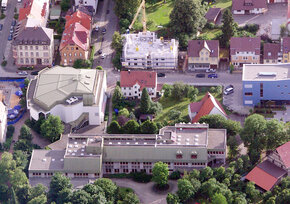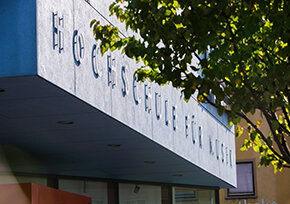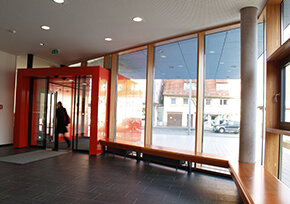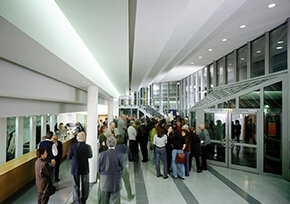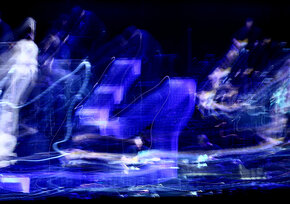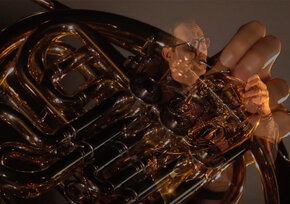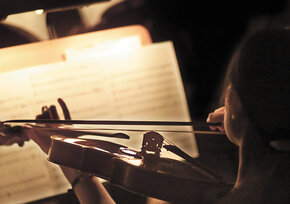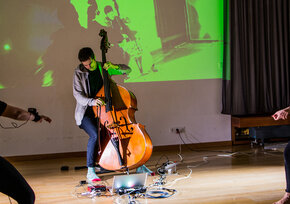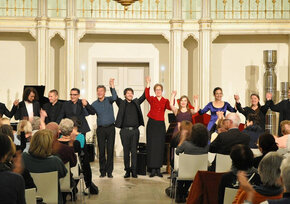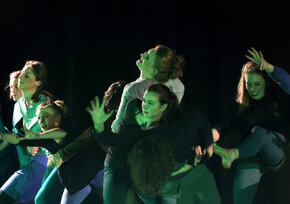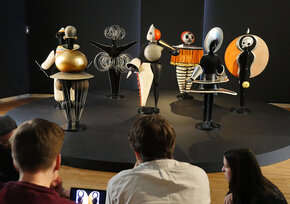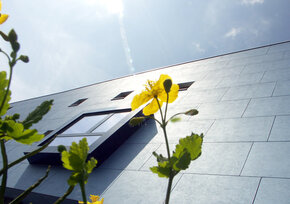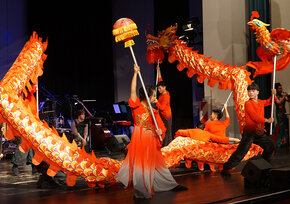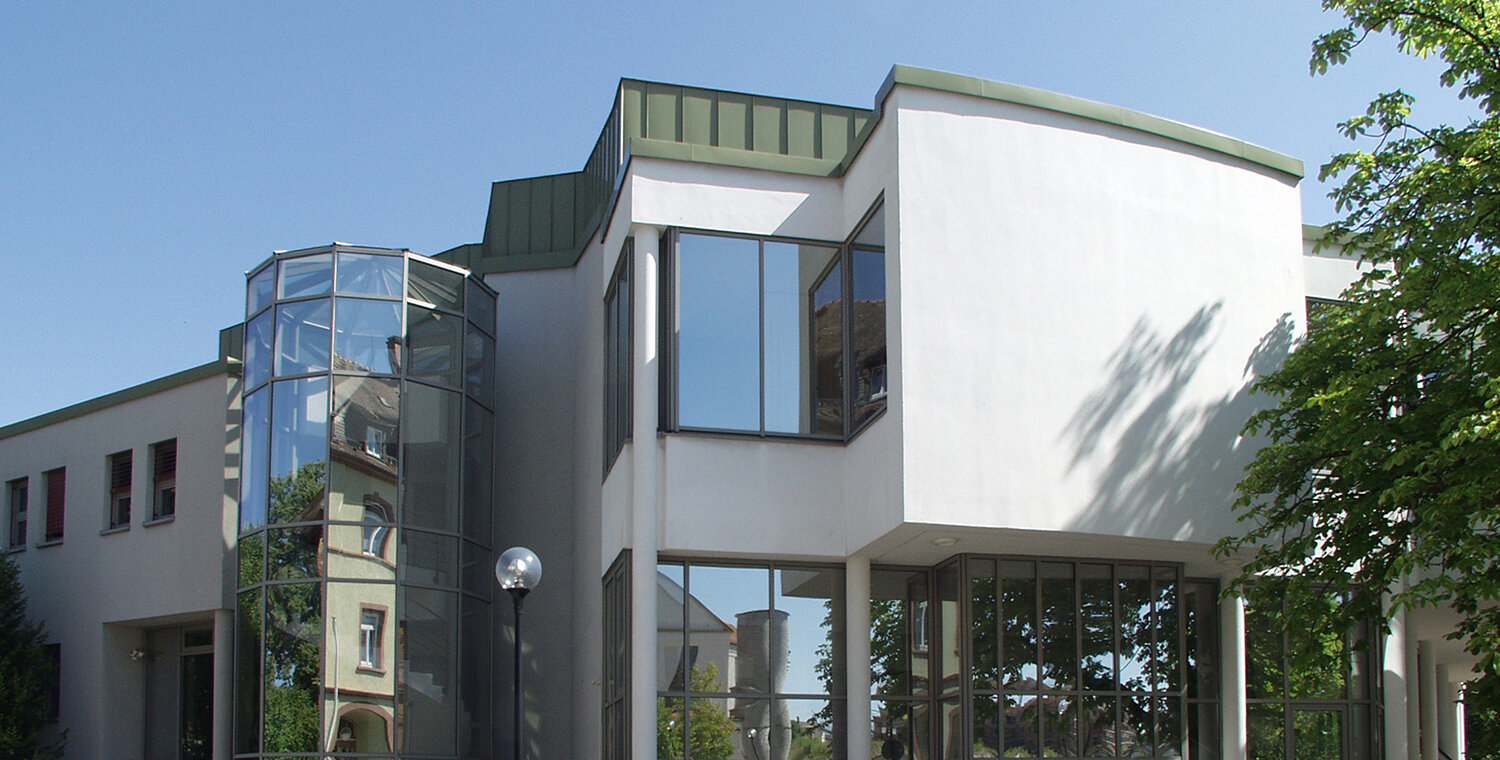
Hungry for Culture - Trossingen University of Music
The Trossingen University of Music offers a traditional range of subjects like any other conservatory, although it places special emphasis on the study of Early Music and Music & Movement. In cooperation with the University of Furtwangen, the school has offered the Music Design course of study since 2010. Partnered with the "Music Academy Villingen-Schwenningen GmbH" the school has been leading the way in music education opportunities since 2005. | Mission Statement
Located in the south of Baden-Württemberg, our University has a far-reaching cultural mission. We see ourselves as a partner, initiator and creative competitor in the modern music scene. The close ties between our students and alumni in this region are unique. Our students have the chance to lead choirs and orchestras, teach, and organize concerts. The economy speaks of prosperity-promoting soft location factors. | A Short History of Our University
Key Dates of Our History
1943: Evacuation of parts of the Stuttgart University of Music to Trossingen, lesson rooms in the Friedensschule
1944: Courses of study at various Universities (Cologne, Frankfurt, Stuttgart, etc.) are combined into the "State University Institute for Music Education at the University of Heidelberg," based in Trossingen, after 1945 under the direction of Ernst-Lothar von Knorr
1946: Establishment of the "State University Institute for Music Education Trossingen"
1947: "State University of the state of southern Württemberg/Hohenzollern" (dissolved in 1950)
1951: "University Institute for Music Trossingen" sponsored by the Hohner Foundation, the State of Baden-Württemberg, the town of Trossingen and the Hohner company
1952: Director Prof. Guido Waldmann
1971: Renationalization as "State University for Music Education Trossingen" (with the newly established church music department)
1972: University director, later elected rector: Prof. Eugen Frosch
1975: "State University of Music Trossingen"
1979: Reestablishment of the school music program
1980: Rector Prof. Jürgen Weimer
1981: Establishment of the orchestral music program
1994: Establishment of the Institute for Early Music
2005: Establishment of the subsidiary "Music Academy Villingen-Schwenningen GmbH" with Precollege, Musikschule, Jazz and Rock school and the Institut for Music Pedagogy
2006: Prof. Elisabeth Gutjahr is elected rector
"Next Generation," an offer for the Donaueschingen Music Days of the SWR, is established together with the Institute for Contemporary Music (IzM) of the Frankfurt University of Music as a forum for young composers.
"Music from the factory" initiative with the "Business Juniors" of the IHK Schwarzwald-Baar-Heuberg
2007: Cooperation agreement with the University of Nanchang (China)
2008: The Trossingen University of Music becomes a member of the International Universities of Lake Constance (IBH)
2009 – 2011: Implementation of the Bologna decisions and beginning of the conversion to bachelor's and master's courses and the development of new courses.
2010: New innovative Bachelor program "Music design" in cooperation with University of Furtwangen
2013/2020: Successful accredition of the Bachelor and Master programs
2014: Cooperation agreement with Tongji University Shanghai
2016: Establishment of the state center MUSIK–DESIGN–PERFORMANCE
2018: Change from Prof. Elisabeth Gutjahr as Rector of the Mozarteum to Salzburg. Prof. Michael R. Hampel, deputy rector, leads the University for one year.
2018: Prof. Christian Fischer, previously rector of the Tübingen University of Sacred Music, is elected as the new rector. He took office in the spring of 2019.
Mission Statement
I
Teachers and students at the university share a mutual respect and enthusiasm for music and related disciplines. As an internationally renowned training and research centre, the Trossingen University of Music cultivates a broad spectrum of artistic forms of expression, aesthetic positions, artistic-pedagogical concepts and academic orientations. The unifying element of all these areas is the mutual understanding of the highest quality. Highly trained students produce outstanding, responsible musicians, teachers and experts in the arts, culture, education, media, science, creative industries and society.
II
We offer an attractive programme of study through regular teaching in individual lessons, seminars and groups as well as in artistic and academic projects. In a learning atmosphere of mutual trust and respectful tolerance, we provide a well-founded, up-to-date and challenging education.
Artistic and academic excellence are just as important to us as artistic and pedagogical penetration, interdisciplinarity and cultural and intellectual openness.
III
We utilise the advantages of innovative teaching and learning formats in a didactically meaningful and effective way for a comprehensive, also experimentally oriented course of study. All committees work together as colleagues to continuously and sustainably develop and improve teaching at the Trossingen University of Music. For us, the focus is on strengthening motivation, focusing on the study objective and the individual promotion of self-reflection, self-confidence and gaining knowledge for students.
IV
The uniqueness and diversity of the members of our university form the basis of an inspiring exchange. This contributes to making the power of music meaningful and effective in society. We promote our students' willingness to learn and perform as well as their enjoyment of music. To this end, we want them to develop the courage to explore new artistic paths, ask questions, take advantage of support services when needed and treat themselves with self-criticism and care.
V
We are part of a region characterised by culture and capable of growth in an increasingly globalised world. For us, internationalisation is a central component and decisive success factor in our overall orientation, development planning and future viability. People from more than 50 countries make music, learn, research and work at the Trossingen University of Music. Networks with partner universities open up new perspectives for students in innovative cooperative approaches - including digitalised forms of teaching and learning. Students are offered an environment that both familiarises them with the structures and conditions of the international world of music and culture and prepares them for the needs of an increasingly globalised working world.
